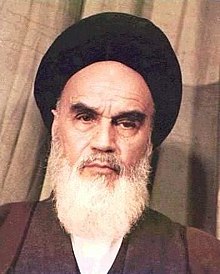|
The demonstrations in Tehran in 2009 came as an unforeseen surprise, not because the Iranian regime had no opponents at home but because the demonstrators who threatened the regime came from within the regime itself. Tens of thousands took to the streets for days, and the demonstrations were only stopped by force and killing..
This time, however, the demonstrations have come from the sidelines, from towns like Mashhad, spreading to other towns, carrying slogans against the ayatollah and state policies, and resonating all over Iran.
.
Public demonstrations may not be able to kill the regime, but they can certainly wound it. Ayatollah Khamenei and his military and political leaders thought that promoting their victories in Iraq, Syria and Lebanon could guarantee their popularity and prolong their lives, but these wars became a counter-argument against them. Most demonstrations in the past couple of days condemned Iran’s interference in the outside world and the evasion by the government of its responsibilities at home.
.
About four years ago, at the early stages of Iranian involvement in the Syrian war, many Iranian MPs warned the warmongering general, Qassem Soleimani, that the state could not afford the costs of his adventures, and that the Iranian people would not tolerate the return of their children in coffins because they had died defending other regimes in foreign wars. Soleimani responded at the time that his war in Iraq and Syria aimed to defend the security of Iran and the Iranian regime.
.
However, his argument was insufficient to justify the losses. Soleimani continued to argue that the war which was defending the Islamic Republic and the clerical system did not cost Iran much. He organized militias from the poor Pakistani and Afghan refugees in Iran and from Iraqis, as well as from about 20,000 Lebanese Hezbollah fighters. There were only a few thousand Iranian soldiers who were taking care of training, intelligence, and command. He even boasted that he did not cost the Iranian treasury much.
Iranian militias may have reached Damascus, Mosul, Beirut, Gaza and Sanaa, but they are incapable of controlling the situation in their own backyard.His war cost Iran a few billions, but he transferred most of the bills to Iraq and forced it to finance the Iranian wars. The Iraqis footed the bills of the fighting militias, as well as the annual commitments of Iran toward Hezbollah in Lebanon and Hamas in Gaza. With the collapse of the prices of oil, however, Iraq refused to pay most of the bills.
Abdulrahman Al-Rashed
.
Iran is a country of nearly 90 million people and it is dependent mostly on oil revenue. However, it is currently facing difficulties, just as other oil-producing countries are. But Iran is a completely closed country, governed by a regime which is similar to the former regimes of Saddam and Qaddafi. It relies on a security apparatus, limits the use of communication and bank transfer services, and imposes heavy fines on traveling abroad. Moreover, Iran has a huge and expensive network of militias and terrorist organizations in many parts of the world from Malaysia to Argentina.
.
It is true that Iran has an advanced military industry compared to other regional countries, but it remains a poor country. This is the problem in similar countries, such as Cuba and North Korea, which have also had to face poverty. The former Soviet Union, Yugoslavia, East Germany, Libya, South Yemen, Syria and other regimes collapsed because they were interested in security and military superiority more than anything else; that is why they remained poor in all other fields. In Iran, the Revolutionary Guards do not control only security; they control everything. Their influence increased during former President Mahmoud Ahmadinejad’s era, dominating even big economic institutions and oil refineries.
.
Therefore, it was only logical to assume that the Iranian regime would face the fury of the majority who helped it to take power 40 years ago, thinking that their lives would improve, but their lives got worse instead.
.
I do not think that the Iranian people will be able to challenge the oppressive apparatus of the regime. However, through their intermittent uprisings, they have been showing the world a different picture. The militias of the ayatollah’s republic may have reached Damascus, Mosul, Beirut, Gaza and Sanaa, but they are incapable of controlling the situation in Mashhad.
• Abdulrahman Al-Rashed is a veteran columnist. He is the former general manager of Al Arabiya news channel, and former editor in chief of Asharq Al-Awsat.
Twitter: @aalrashed


Comments
Post a Comment